Why are management sims so popular right now, and what does it say about our gaming habits?
Why have management sim games had such a resurgence?
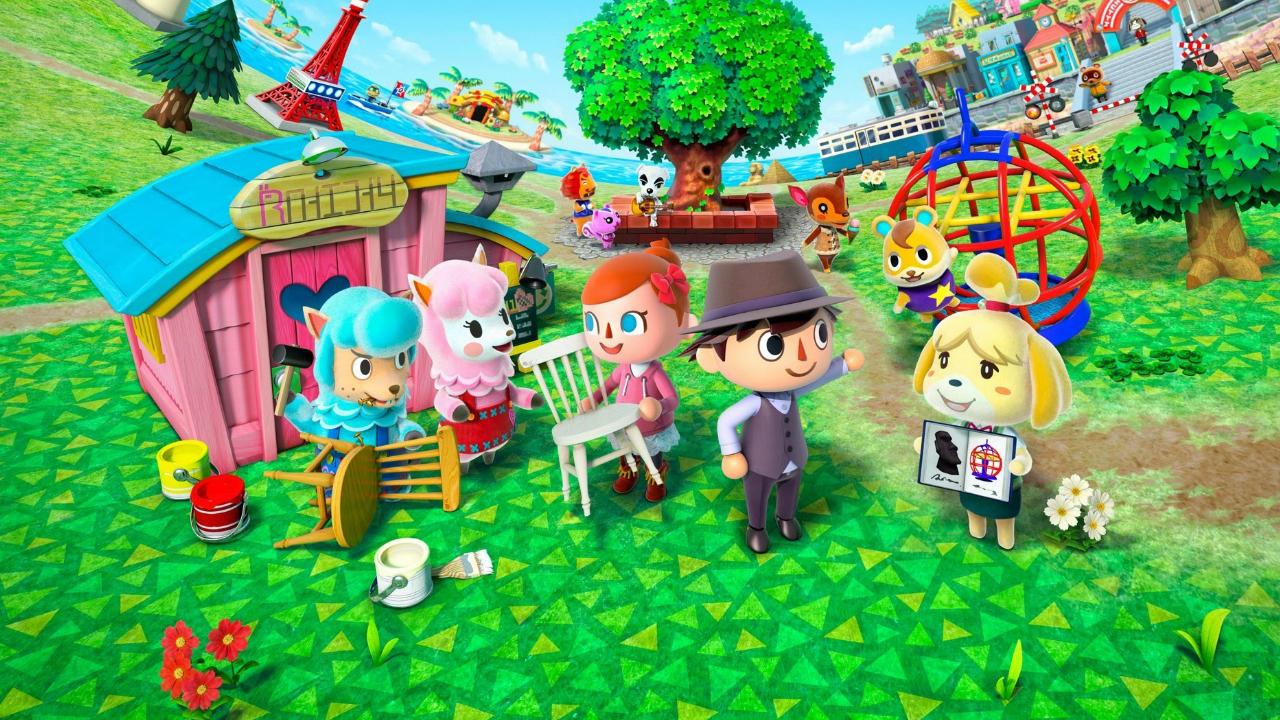
There was a time last year where at least four members of the GamesRadar team were religiously playing Stardew Valley. And I mean religiously. I'm talking spreadsheets, notepads filled with frantic scribblings on crop seasons, planting patterns and what gifts each of the various villagers might appreciate. Oh, and then there was the WhatsApp group dedicated to picking apart every facet of ConcernedApe's creation. Tiling pixelated soil is serious business, folks.
There is a certain majesty to the way in which management sim games end up sinking their hooks into prospective players. Not to mention a certain madness that's associated with playing them so regularly that entire days can be wasted away investing in these small business enterprises, with the compulsion eventually leading to these moments where you end up looking at the clock and wondering why it reads 2:00 am when the last time you looked outside, the sun was still shining.
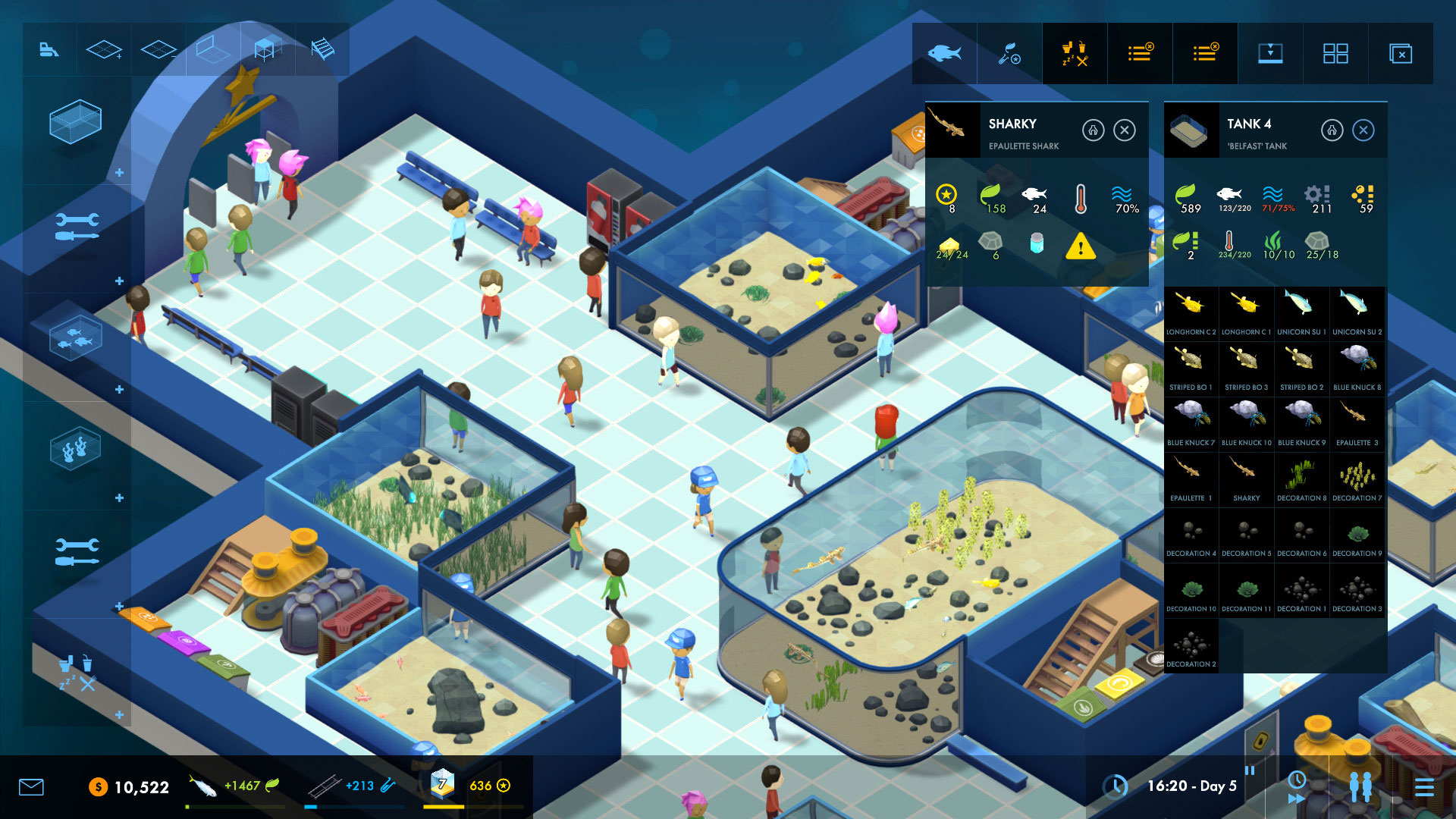
It's interesting, then, that these types of games are seeing quite the resurgence. In the last 18 months alone, we've seen the launch of: Jurassic World Evolution; the colourful pop art version that is Parkasaurus; Two Point Hospital, the spiritual successor to Theme Park Hospital; the aquarium management sim, Megaquarium; the hilariously morbid Graveyard Keeper; Frostpunk; several Sims 4 expansions; Stardew Valley continues to be released on other platforms; and we're facing the Animal Crossing Switch launch sometime this year, meaning that I'm probably about to be sucked down that particular rabbit hole once again. That's a hell of a lot of management sims that have released in a real short space of time. It shows no signs of slowing down either, with the likes of Cooking Simulator, Ooblets, and a particularly appealing House Flipper DLC called Garden Flipper, all on the near horizon.
But why now? Why is it that we are still, in 2019, consuming management sims with the same fervor and unyielding devotion that we afforded to the likes of Theme Park World, RollerCoaster Tycoon, and Harvest Moon 64 back in 1999? The answer is psychological in nature; there's something in the repetition, control, achievement, and ultimately, the escapism, that we just can't turn away from.
The comfort of repetition
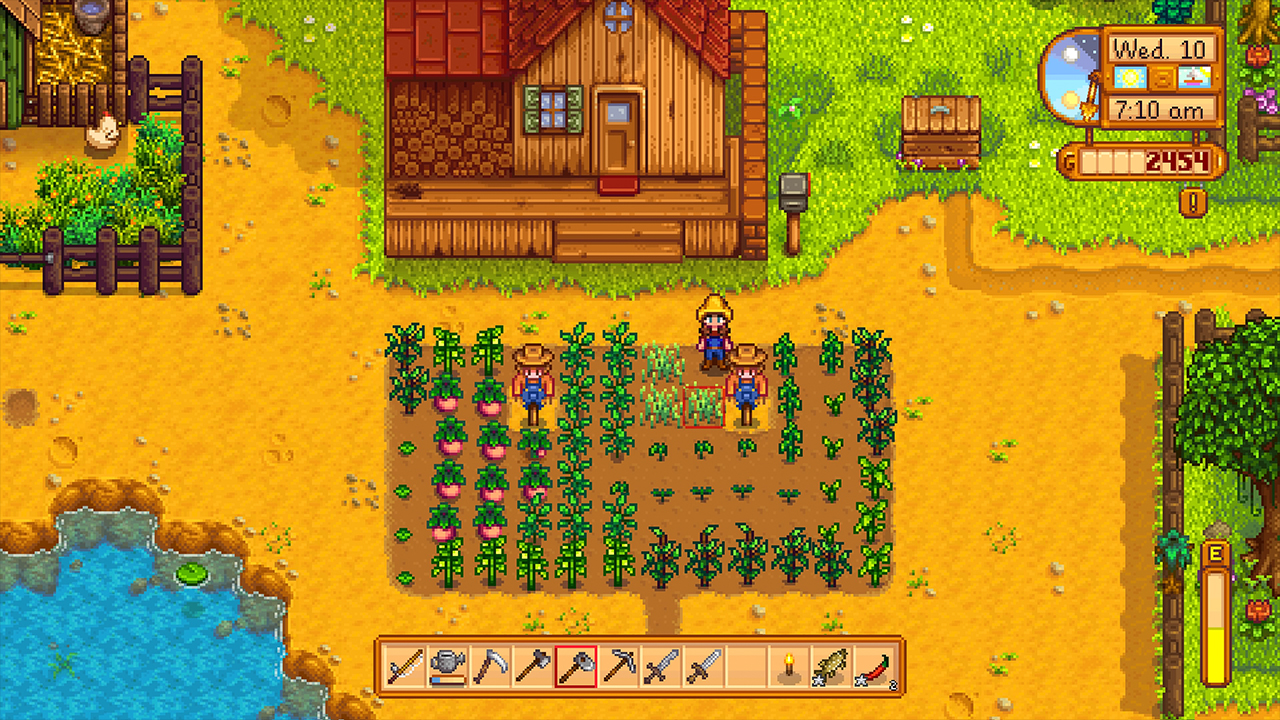
On paper, I would bet that most of us would shy away from the idea of 'loving our routine', be it the small things we do each day, like feeding the fish, cleaning your teeth or the bigger things that shape your life, like your commute, your job, your biweekly gym sessions, etc. and so on. In truth, it's the repetition found in the core-gameplay cycle of management sims that compels us to invest more and more time into them.
Cognitive scientist Elizabeth Hellmuth Margulis, director of the Music Cognition Lab at the University of Arkansas, investigates the idea and effect of repetition in music in her book On Repeat: How Music Plays the Mind. In it, Margulis explores the psychological phenomenon known as the “mere-exposure effect", where it is suggested that the simple act of hearing something regularly makes it more familiar, and therefore much sweeter to the ear. It's our ability to predict the note that's coming next that makes us so susceptible to earworms, and it's summed up well in this beautifully illustrated TED-Ed video:
Now while Margulis' work focuses specifically on music, the familiarity principle can easily translate to management sims. Each one of these genre games has a repetitive gameplay loop, whether it's a day/night cycle, a series of events that play out week after week, or a full seasonal cycle. They are, at their most basic level, predictable; we can play through these games ad nauseam, on auto-pilot should we so choose, but that's ultimately what makes them so sweet – the predictability. There's a safety there, a familiarity that's comforting in a world where every news headline can seem bafflingly bizarre, and every day can bring us surprises that unsettle and upset us.
Weekly digests, tales from the communities you love, and more
When it comes to repetition, Stardew Valley has it in spades. Tending to livestock, going fishing, sowing seeds, watering crops, and collecting your various harvests are all activities that you need to complete daily in this wonderful farming world. And when the days in Stardew only last an hour or so when compared to our boring old real-world time, you're going to find that you are repeating these habits over and over, and over and over again. Will you find me complaining about it? Absolutely not, because what is Stardew Valley if not an experience wholeheartedly focused around finding peace in the tranquillity of a simple life.
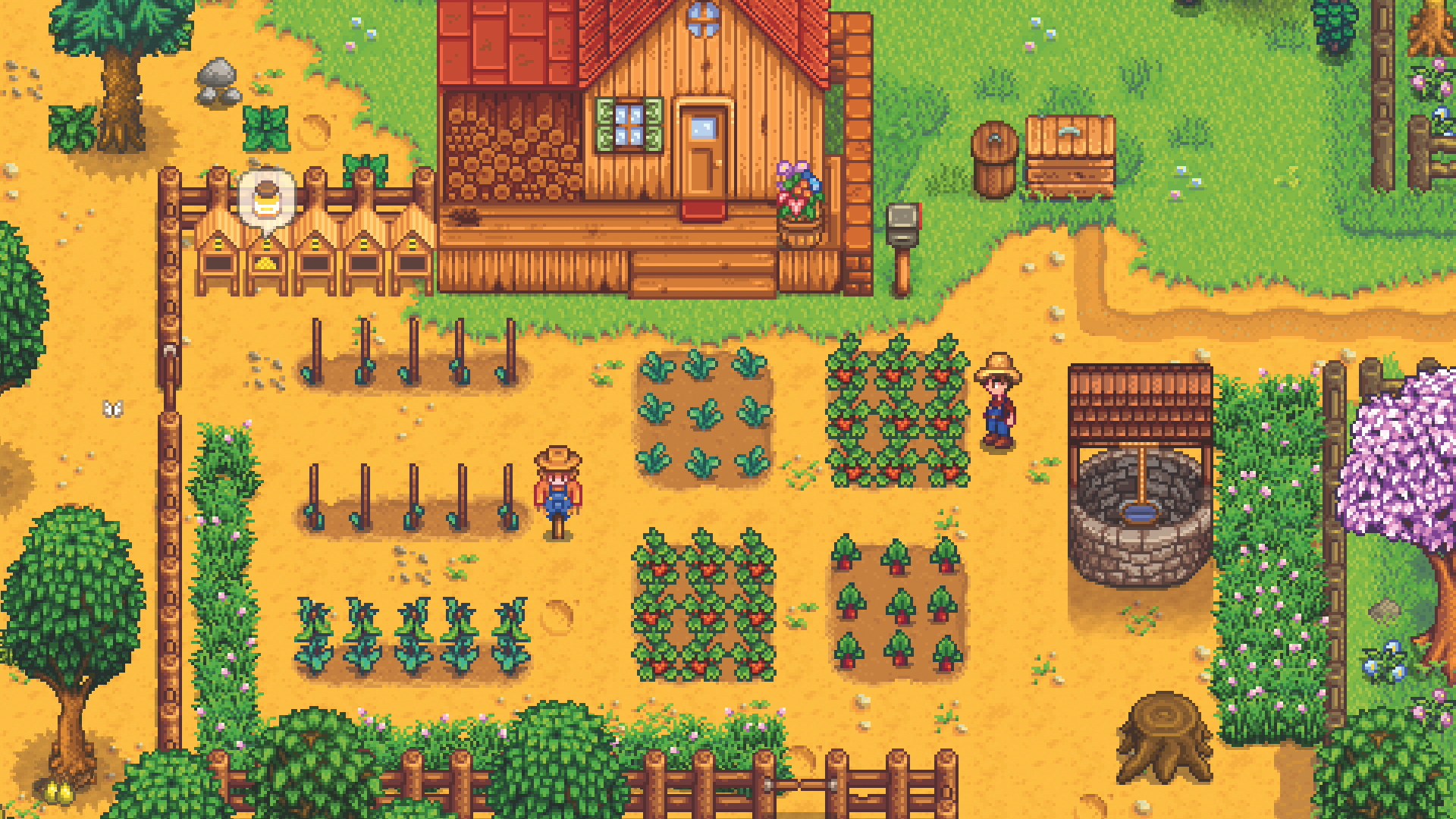
Now, of course, that in itself may be a sign that the fast-paced, ever-connected digital era that we find ourselves trapped within is beginning to overwhelm us. Perhaps it was an inevitability that we would long for a return to a simpler life grounded in the safety and stillness of nature – and all without having to get our boots dirty, because what are we all but lazy millennials.
But we are all also creatures of habit, where, as author Haruki Murakami says, "the repetition itself becomes the important thing; it’s a form of mesmerism". Management sims are brilliant at mesmerising us. Megaquarium, Jurassic Park Evolution and Parkasaurus all work on the idea that if you keep doing things regularly and rhythmically, you'll earn enough money to keep buying more stuff, which makes you more money so you can buy more stuff. It sounds ridiculous when you write it like that, but I've lost track of the time I've spent watching a bank balance increase at the end of each day, just waiting for that figure to hit a certain amount so I can buy the Next Big Thing™ - or Next Big Fish in Megaquarium's case.
Regaining control
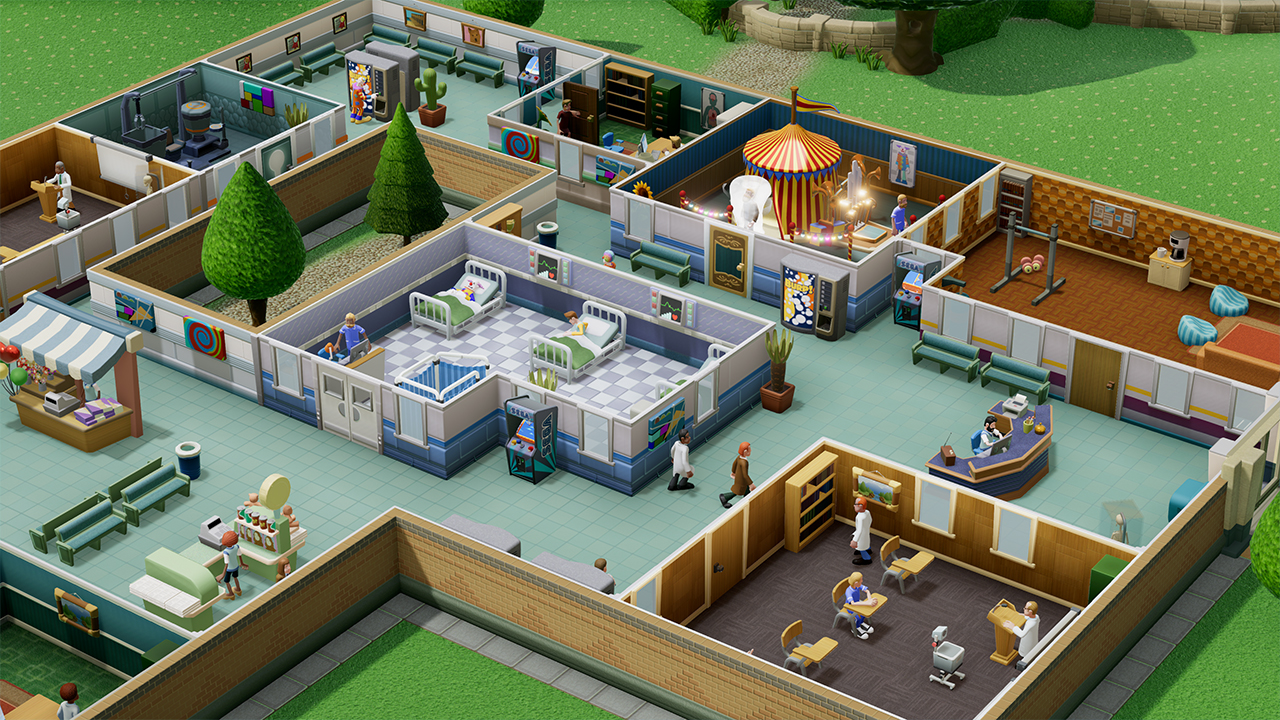
And of course, it's partly about control too. We tend to gravitate towards management sims that either directly mirror, or at least act as partial representations, of real-world jobs that we can at once recognise and understand. I'm talking farmers in Stardew Valley, doctors in Two Point hospital, or, err, graveyard keepers in, well, Graveyard Keeper. If you want to go really deep into this idea, I recommend that you read "Free Time" from German philosopher Theodor W. Adorno. Throughout the essay, Adorno states that "free time is nothing more than a shadowy continuation of labour", arguing that "the contraband of modes of behaviour proper to the domain of work, which will not let people out of its power, is being smuggled into the realm of free time." And that's especially true when it comes to management sims, as we're basically playing games to work some more.
But the tasks we have to undertake in these games are within our control. They're always goal quantifiable, goal-orientated, and you basically can't lose – or if you do, you usually know exactly why. I bet not one of us can say the same about our actual work 100% of the time. Sometimes our jobs can be tiring and frustrating; we can be made to feel inefficient or like we are just doing what we're told to, all of this can have a negative impact on our sense of self. Management sims can cut out the majority of those negative connotations until you feel empowered and constantly in control of your own destiny.
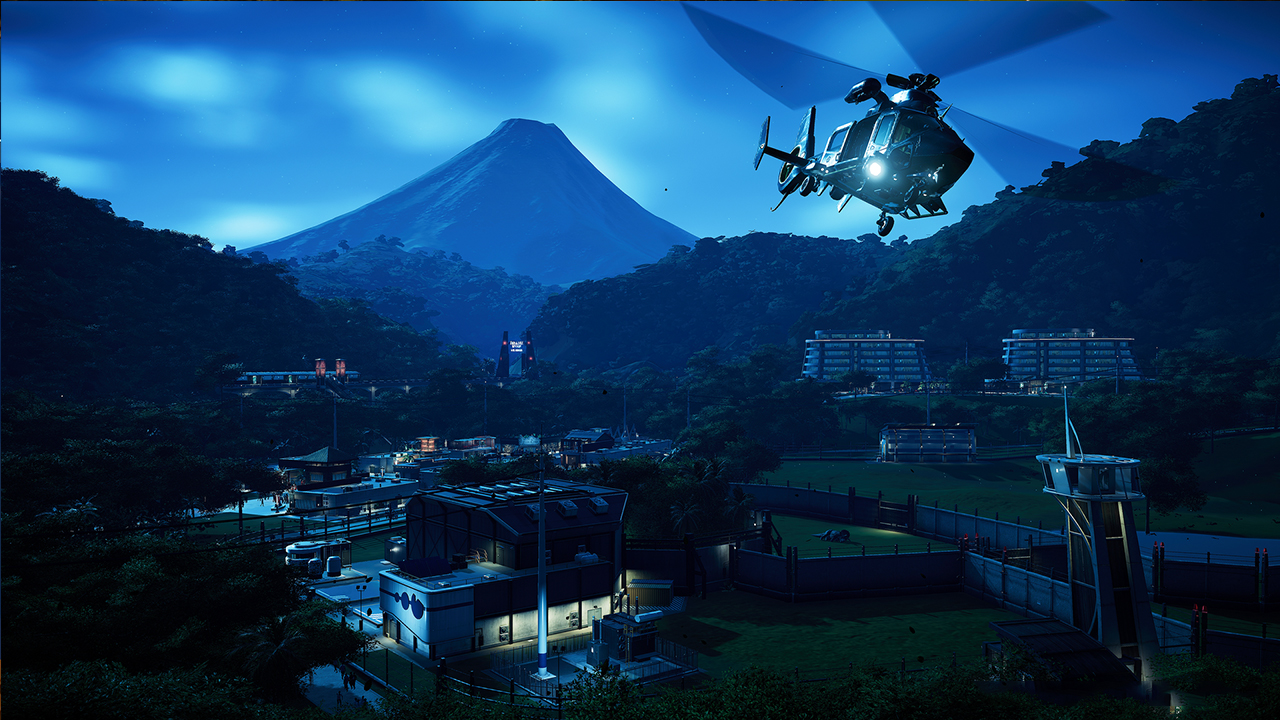
And, strangely enough, with something like Jurassic World Evolution – and Parkasaurus on a smaller scale – there's a wonderful pleasure in always being on the verge of losing that control. Unless you're constantly monitoring the stats and needs of your dinos, they're going to break loose, cause havoc, and will probably attempt to eat a few of your guests. And by probably, I mean definitely. But it's the fact that management sims give you the tools to fix the intermittent moments of madness with a few clicks of a mouse (or hammering of keystrokes) that ultimately gives us a glorious sense of ownership over our actions, working to satiate our continual quest for control
Continuous rewards
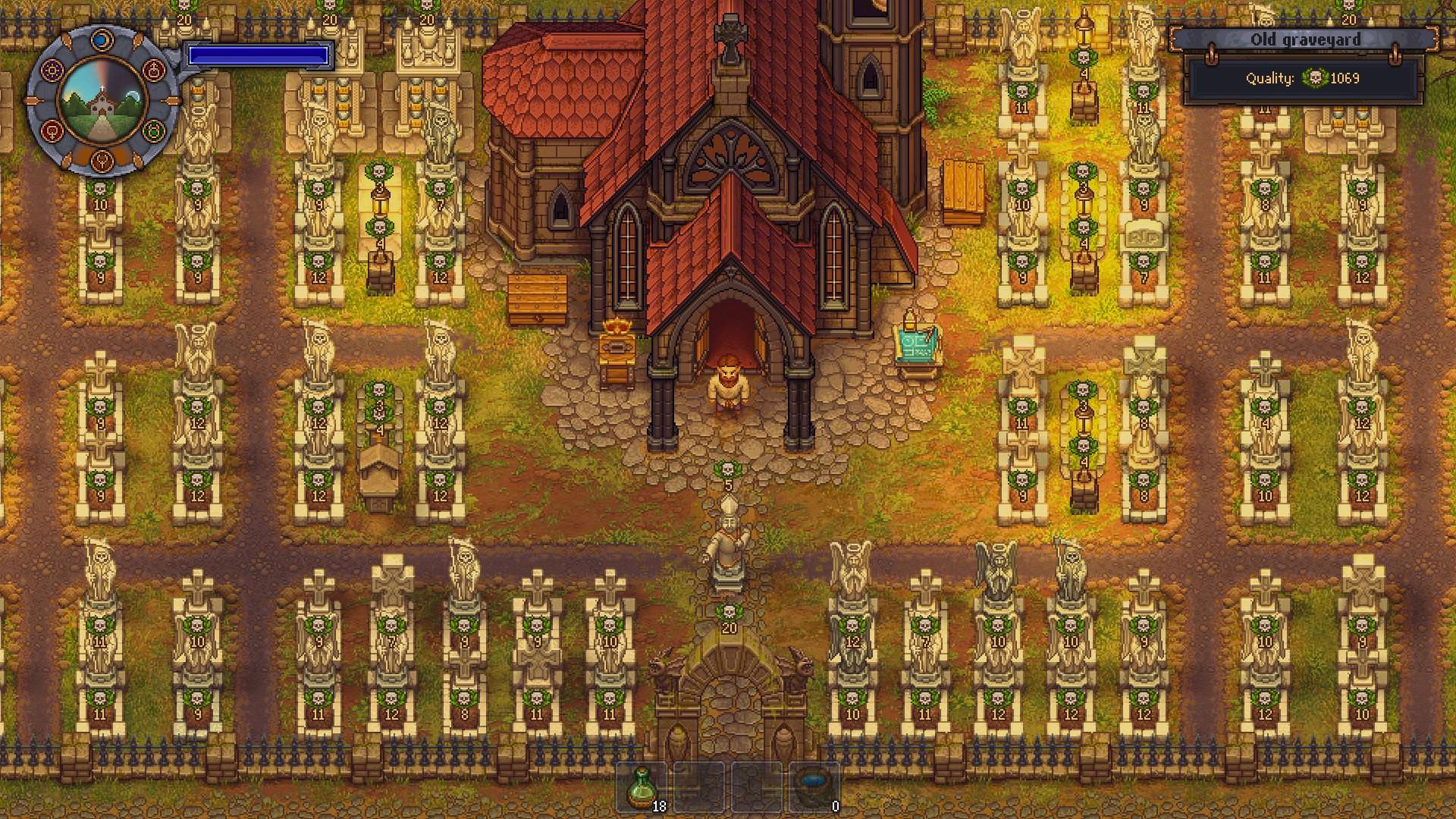
That gratification also comes from that constant sense that you're ticking things off a list. Most of these games set you incredibly lofty goals and regularly stack up objectives so you constantly have something to work towards. Graveyard Keeper is particularly good at that, as you have to research everything to unlock various crafting recipes, items, and even the actual benches and chopping blocks to create said items, which all serves to create an almost infinite checklist gameplay loop. Seriously, I have a notepad dedicated to all the crap I need to either forge, gather and otherwise accrue in order to proceed in this game.
The same is true of Stardew Valley. If you're a good member of society, you'll need to collect literally hundreds of items to fill the bundles required to restore the Community Centre via the power of the Junimos. Seriously, they're adorable, give 'em a Google. Every single little achievement is continuously satisfying, that sense of accomplishment just keeps on keeping on, and with every one, your brain releases dopamine, the chemical that causes you to feel pleasure. Thus, you're continually motivated to keep playing because there's an achievable goal in sight and you know what the steps are to get there.
Neuroscientists refer to this endless need to achieve small goals as "self-directed learning", as it becomes an effective way to stay motivated during longer-term projects and goals. But, it's also why we become so immersed in management sim games, because they mirror this regular small dose dopamine fix. After all, we all love feeling rewarded.
Get out of town
That feeling of achievement also ties into the idea that diving into management sim worlds is a form of escapism, where you're able to go to a place where goals are easily achievable. It's in these gamest that it's so easy to be distracted from the realities of everyday life, and often lead a life that you could never feel able to achieve in real life. The Sims 4, for example, allows us to cheat our way to having millions (if not billions, if you spam "motherlode" enough) and build houses that we could never afford in real life – unless you get very, very lucky or happen to choose the right profession. The same with something like House Flipper, where you can achieve (my) dream of buying a house, fixing it up, and selling it on. And although I never even considered that I'd quite like to work at an aquarium, Megaquarium is proving otherwise.
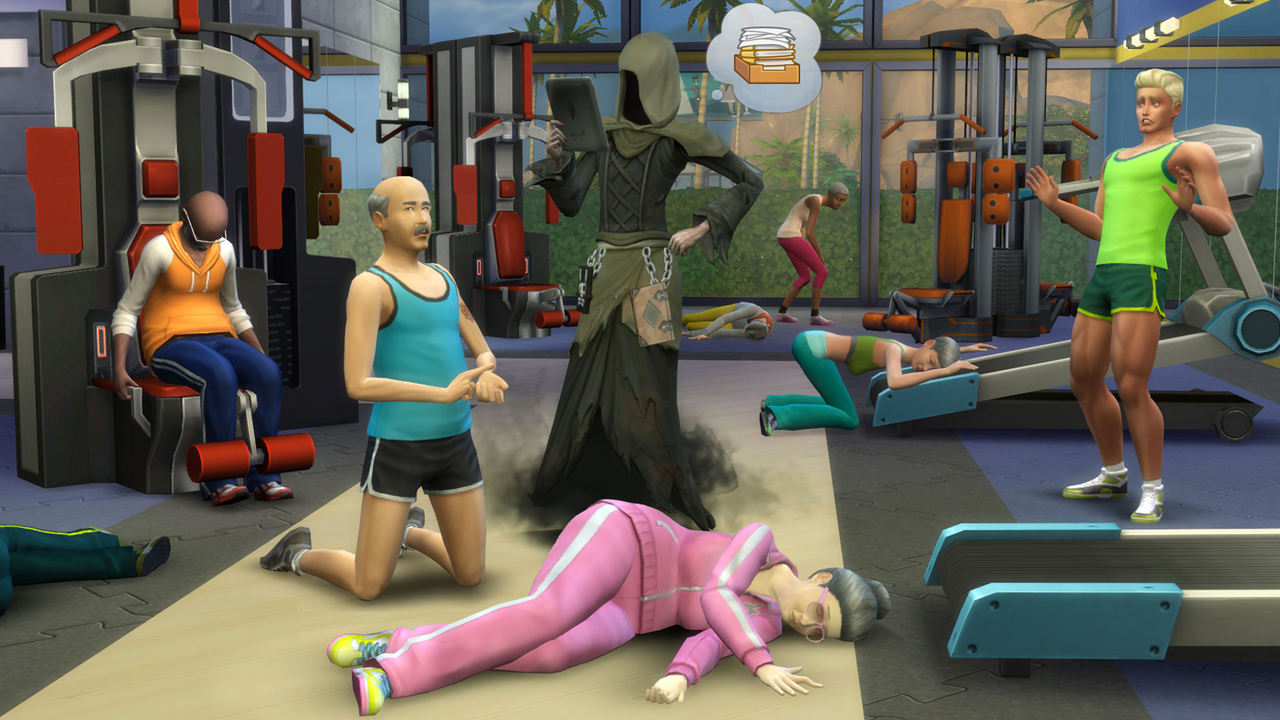
I'm not sure how exactly that equates to something like Graveyard Keeper, where I've found myself taking great joy in having rows of well-tended graves, preserving my bodies perfectly, and harvesting organs to later sell for profit. That's definitely not something I ever intend to do in real life, but there's a comfort to be had in the routine of it all in my off time.
I think it's all best summarised in this definition of games by the philosopher, Bernard Suits: "Playing a game is the voluntary attempt to overcome unnecessary obstacles." Regardless of what your real life is like, you're choosing to head into these virtual worlds by choice, willingly adopting new challenges, checklists and more as a way – somehow – to relax. It's true of all video games, but I think the guaranteed sense of achievement, zen-like repetition, and ultimately a sense of control that I find unachievable in games that aren't single-player, is what really makes management sims the ultimate form of video game escapism.
Want more management sim action? Why not check out the 10 weirdest simulation games that are about to become your new favourite hobby

Sam Loveridge is the Brand Director and former Global Editor-in-Chief of GamesRadar. She joined the team in August 2017. Sam came to GamesRadar after working at TrustedReviews, Digital Spy, and Fandom, following the completion of an MA in Journalism. In her time, she's also had appearances on The Guardian, BBC, and more. Her experience has seen her cover console and PC games, along with gaming hardware, for a decade, and for GamesRadar, she's in charge of the site's overall direction, managing the team, and making sure it's the best it can be. Her gaming passions lie with weird simulation games, big open-world RPGs, and beautifully crafted indies. She plays across all platforms, and specializes in titles like Pokemon, Assassin's Creed, The Sims, and more. Basically, she loves all games that aren't sports or fighting titles! In her spare time, Sam likes to live like Stardew Valley by cooking and baking, growing vegetables, and enjoying life in the countryside.


